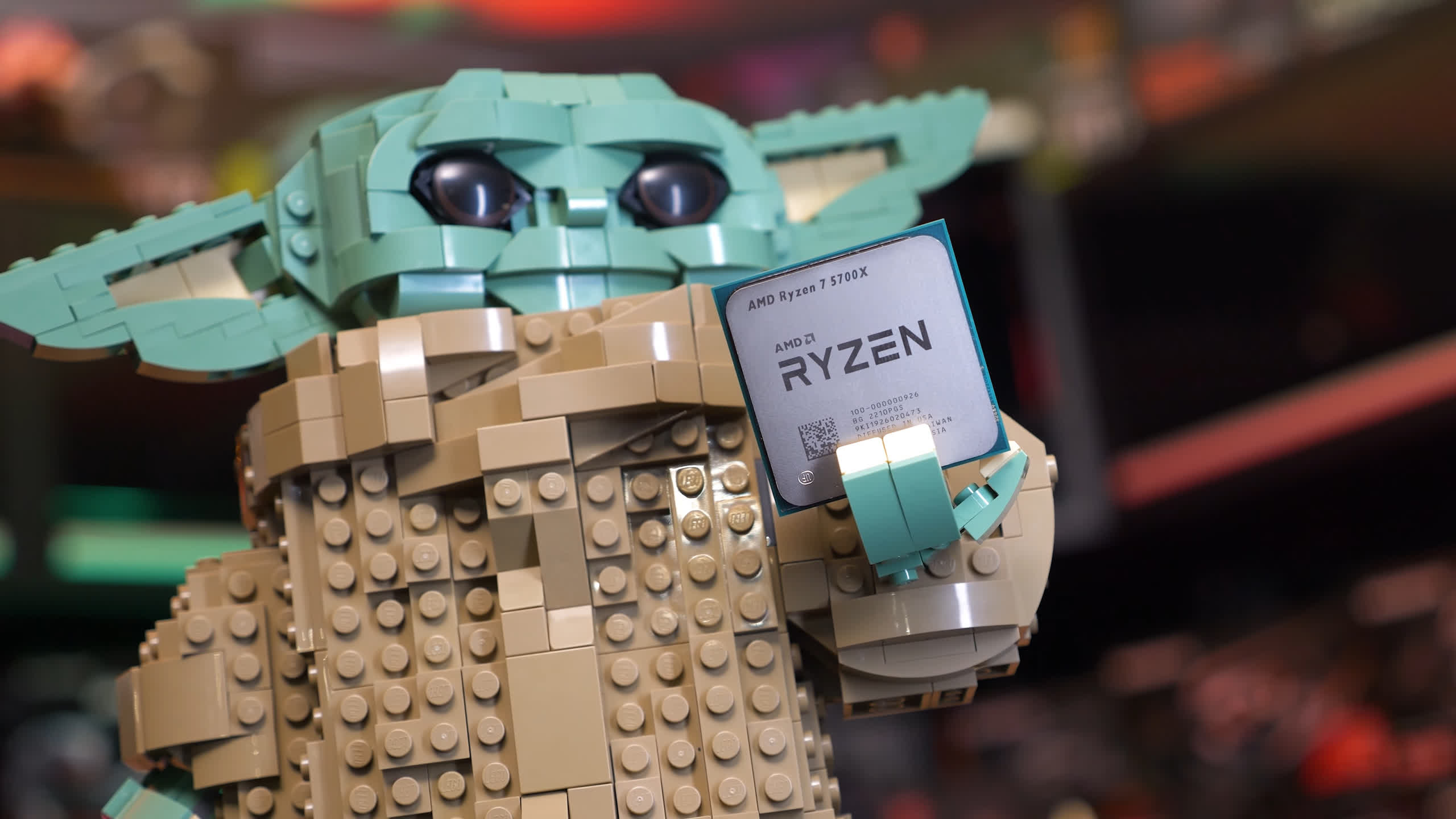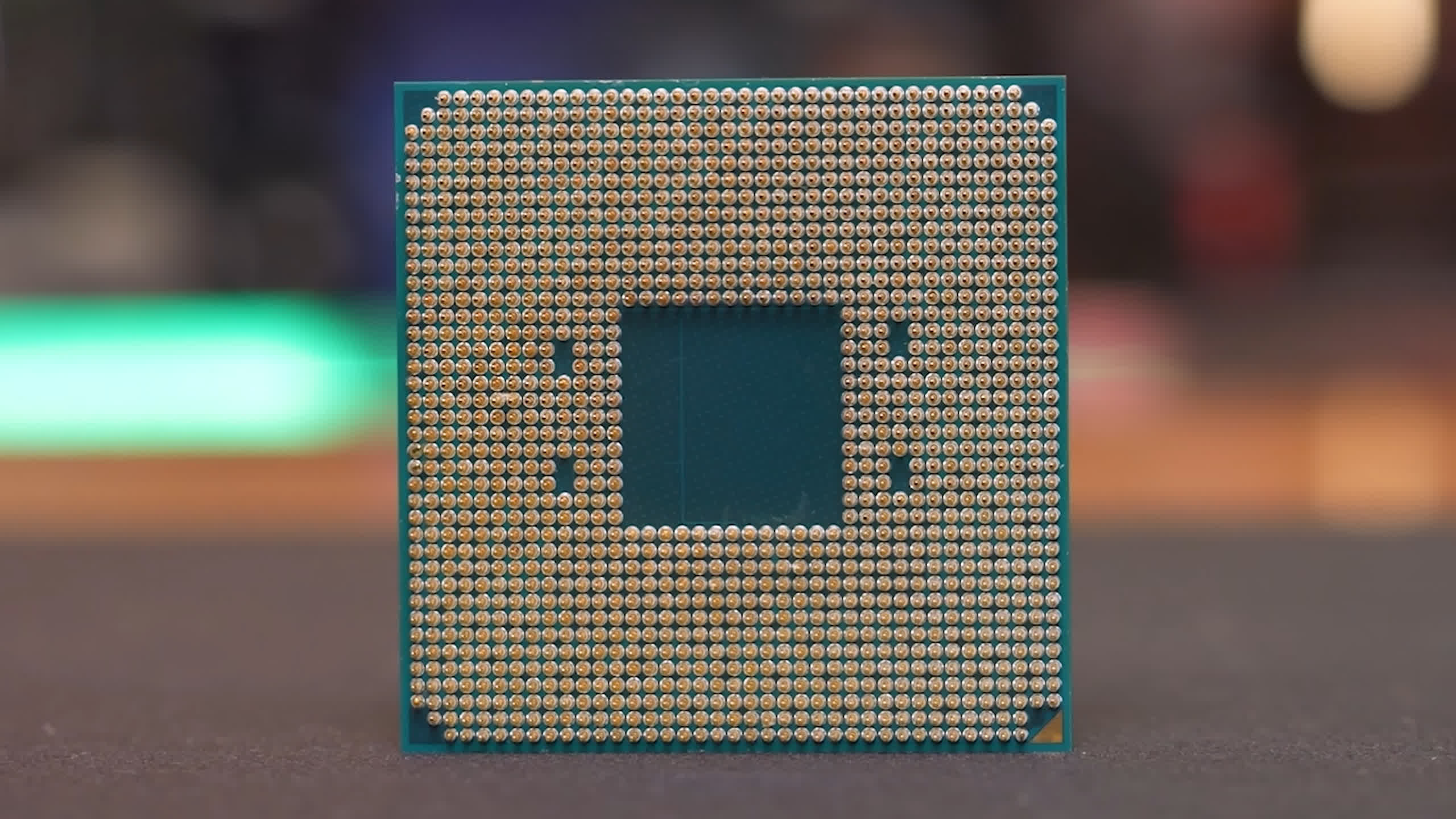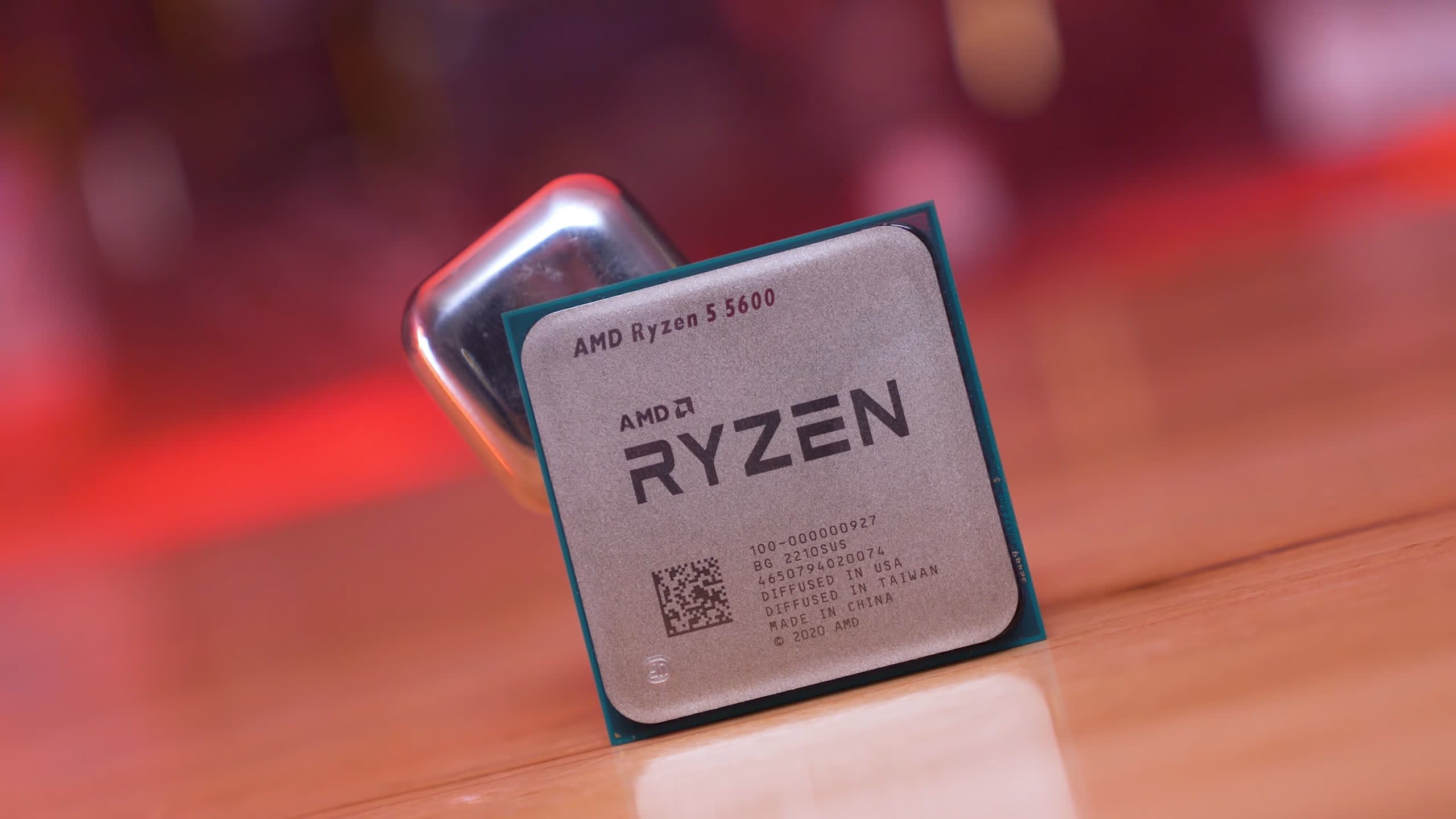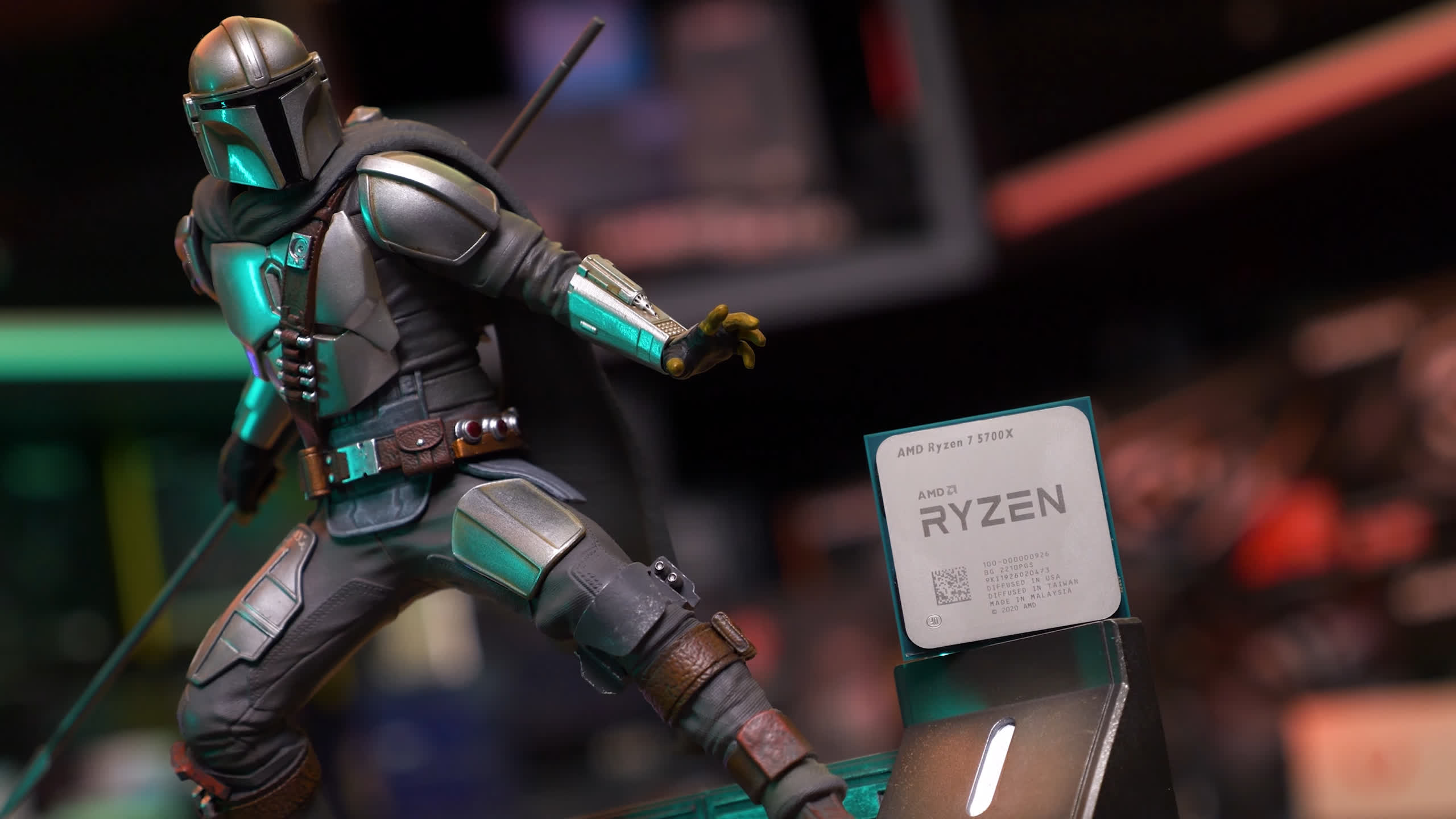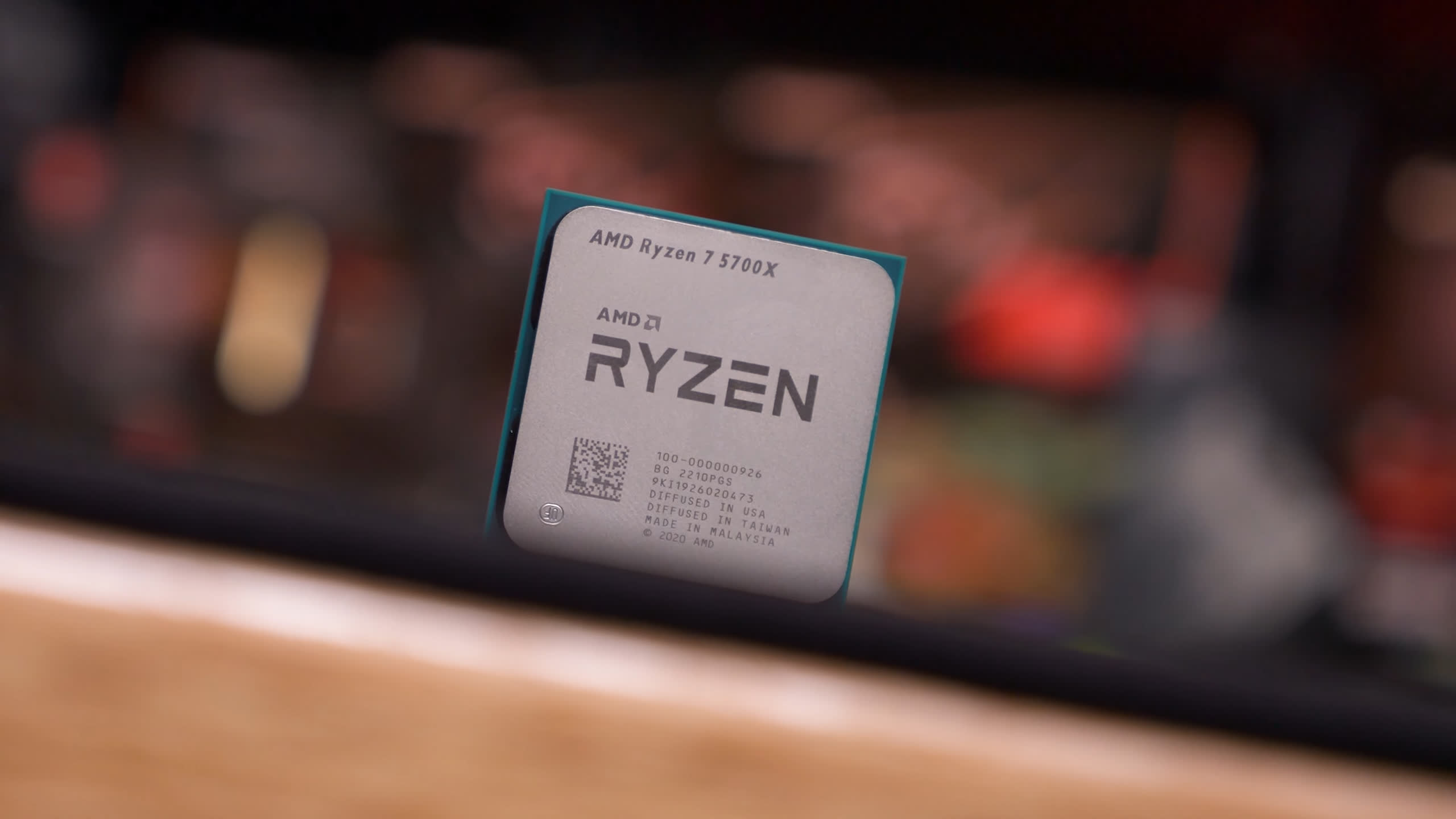If you're looking to upgrade from an older Ryzen or building a new PC, the two most attractive options for gamers right now are arguably the Ryzen 5 5600 for ~$200 or the Ryzen 7 5700X for ~$300. A quick and simple cost per core calculation will tell you that the 5700X is coming in at a 13% price premium, resulting in a 50% price hike overall, so is it worth it and at what point should gamers consider the 5700X over the 5600?
In this article we'll answer those questions and more, so let's go over the test system specs, jump into the results, and then break it all down.
For this one we've got a 24 game benchmark covering the 1080p and 1440p resolutions using both the Radeon RX 6950 XT and 6600 XT, with SAM enabled.
The motherboard used for testing is the old MSI B350 Tomahawk using the latest BIOS revision based on the AGESA 1.2.0.7 microcode, which enables Resizable BAR support along with support for Ryzen 5000 series processors. Please note as shown previously performance is within a few percent of what we see with the best X570 boards.
Then we have 32GB of DDR4-3200 CL14 dual-rank dual-channel memory, and this same configuration was used for testing all Ryzen processors. With that out of the way, let's go over about a dozen of the games tested and then we'll take a look at the 24 game average...
Benchmarks
Starting with Fortnite using competitive quality settings, we find that the 5700X offers a slight performance advantage, though I wouldn't be too quick to chalk that one up to the fact that we're comparing 6 vs. 8 cores.
We're talking about a small 4% to 5% performance difference and the 5700X typically clocks 5% higher than the 5600, so we'd say this is where the bulk of the performance discrepancy comes from, which makes sense given Fortnite isn't a heavy core user.
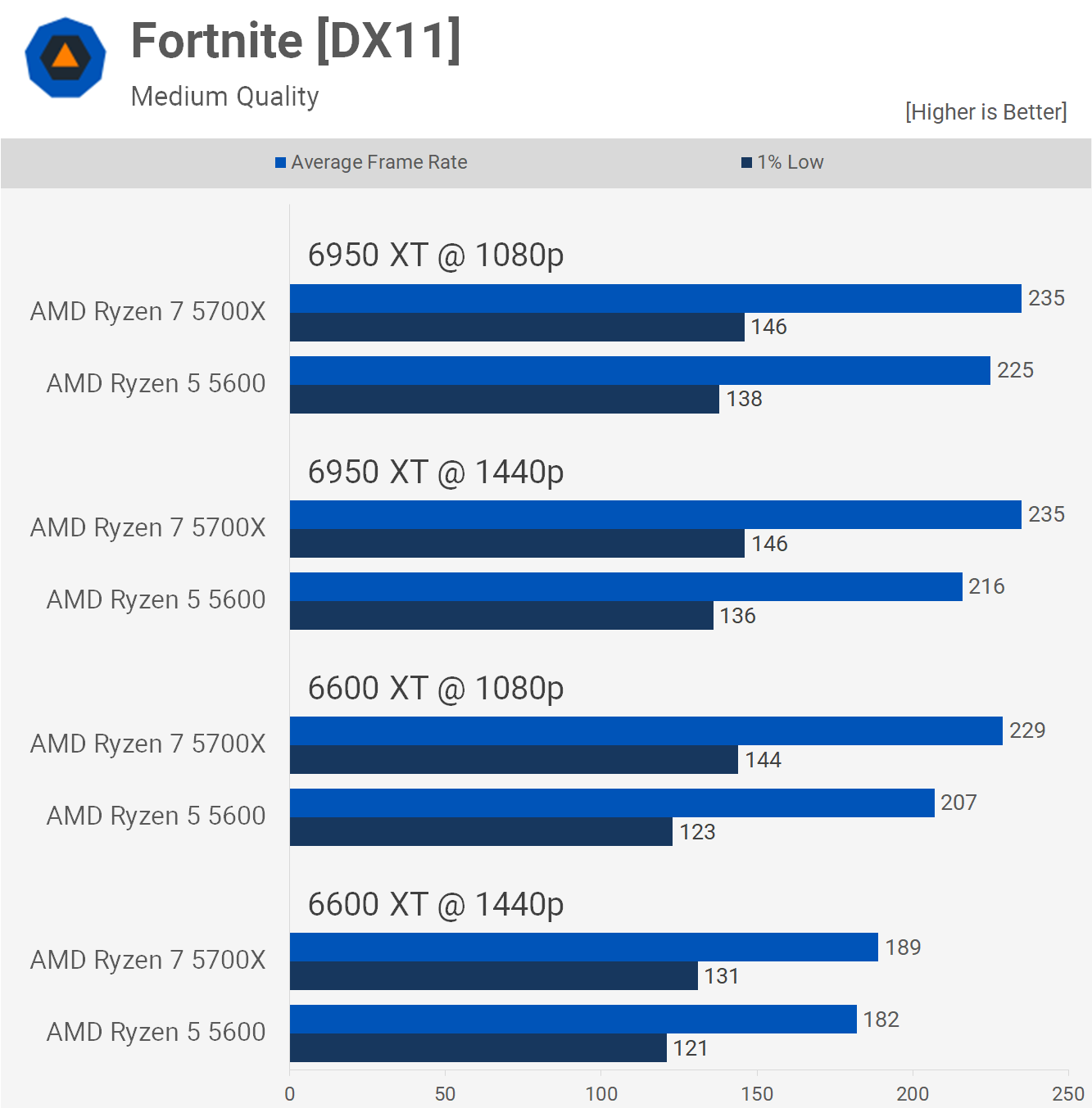

It's a similar story when testing ACC, we're looking at a 4-6% difference between these two CPUs and with the medium quality settings the game is heavily CPU bound, particularly at 1080p.
Again, it's the clock speed advantage of the 5700X that is key to the performance discrepancy, but with both being unlocked CPUs, you should be able to achieve the same level of performance by simply overclocking.

Out of the 24 games we benchmarked, the only title to show more than a ~10% margin between the 5600 and 5700X was Call of Duty Vanguard. Here the 5700X was up to 25% faster when paired with the 6950 XT and still 22% faster at 1440p, though the 1% lows were similar, leading to an indistinguishable experience overall.
Using the 6950 XT at 1080p, CPU usage of the Ryzen 5 5600 never dipped below 80% in our test, generally hovering around 90 - 95%. Despite that though, frame time performance was excellent with no stuttering, but with more headroom the 5700X was able to push frame rates higher.
This is an example where the extra 2 cores did result in significantly more performance, though not to a degree anyone would notice given the level of performance the 5600 already enables.
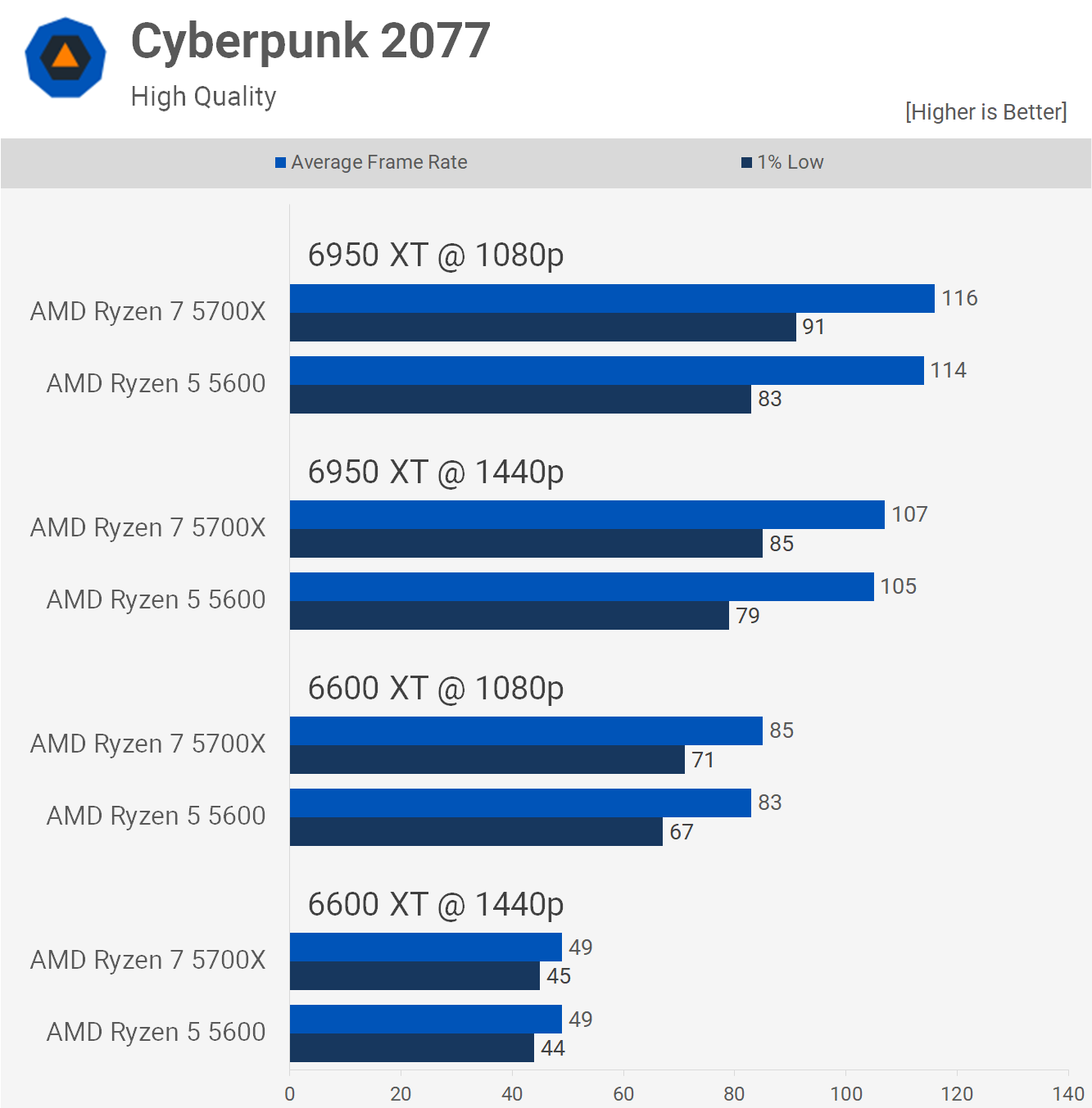
Cyberpunk 2077 leans on the CPU quite heavily, though the same is also true of the GPU and it's typically the graphics side of things where performance is most limited in this game.
At 1080p using the 6950 XT we did find that 1% lows were 10% stronger with the 5700X and that margin goes beyond the 5% clock speed advantage. The experience with the 5600 was virtually indistinguishable though.
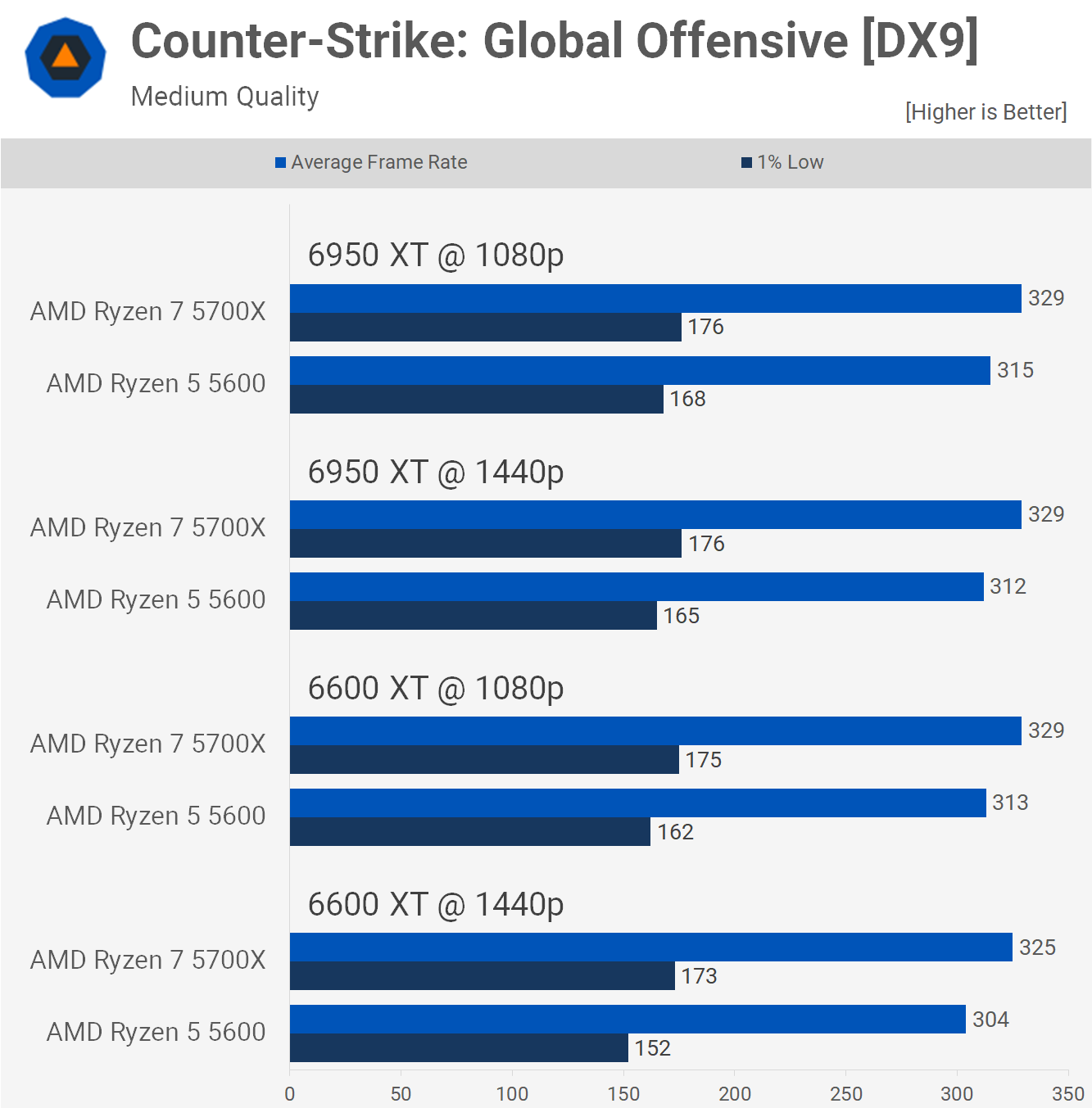
Moving on, we have Counter-Strike Global Offensive though there's not much to see here. We love competitive shooters, but with modern CPUs and GPUs able to push past 300 fps, it's hard to say how relevant this game is for testing modern hardware.
The 5600 and 5700X are the primary system bottleneck in this test with the 6600 XT and 6950 XT delivering the same level of performance. There's only a 4% margin between the two CPUs, which can be attributed to the difference in clock speed.
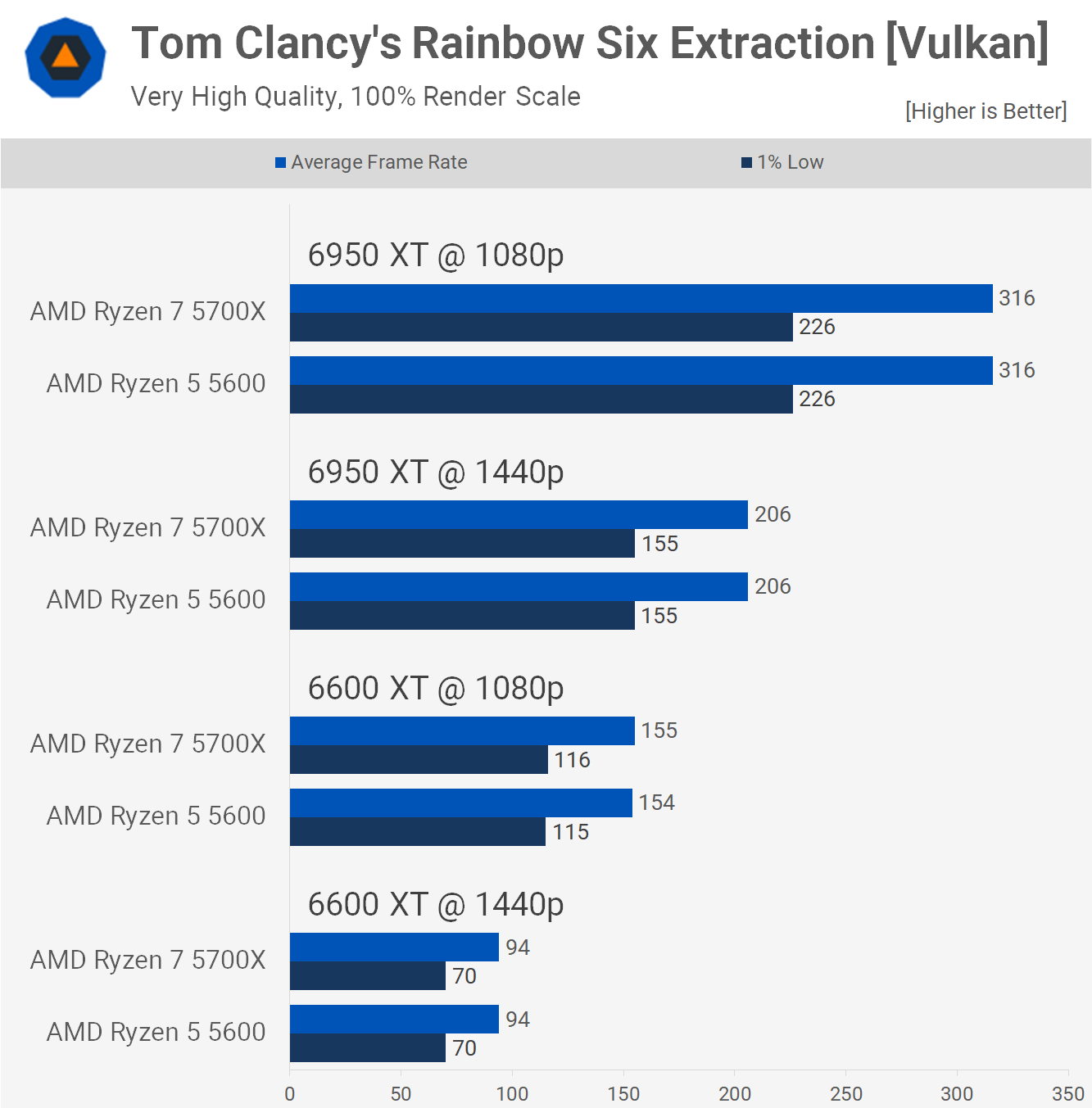
Rainbow Six Extraction is another competitive shooter but this one is entirely GPU bound using the 5600 or 5700X, even with the high-end Radeon 6950 XT.
We're using the second highest quality preset for testing, but even so the 6950 XT was good for over 300 fps at 1080p. For most of you that's likely more than enough performance.

F1 2021 is another game that plays at hundreds of frames per second using the latest and greatest hardware, though it's not nearly as CPU limited as CS:GO.
The Ryzen 5600 and 5700X were neck and neck with the RX 6600 XT, and then with the 6950 XT we see up to a 6% margin favoring the 5700X.
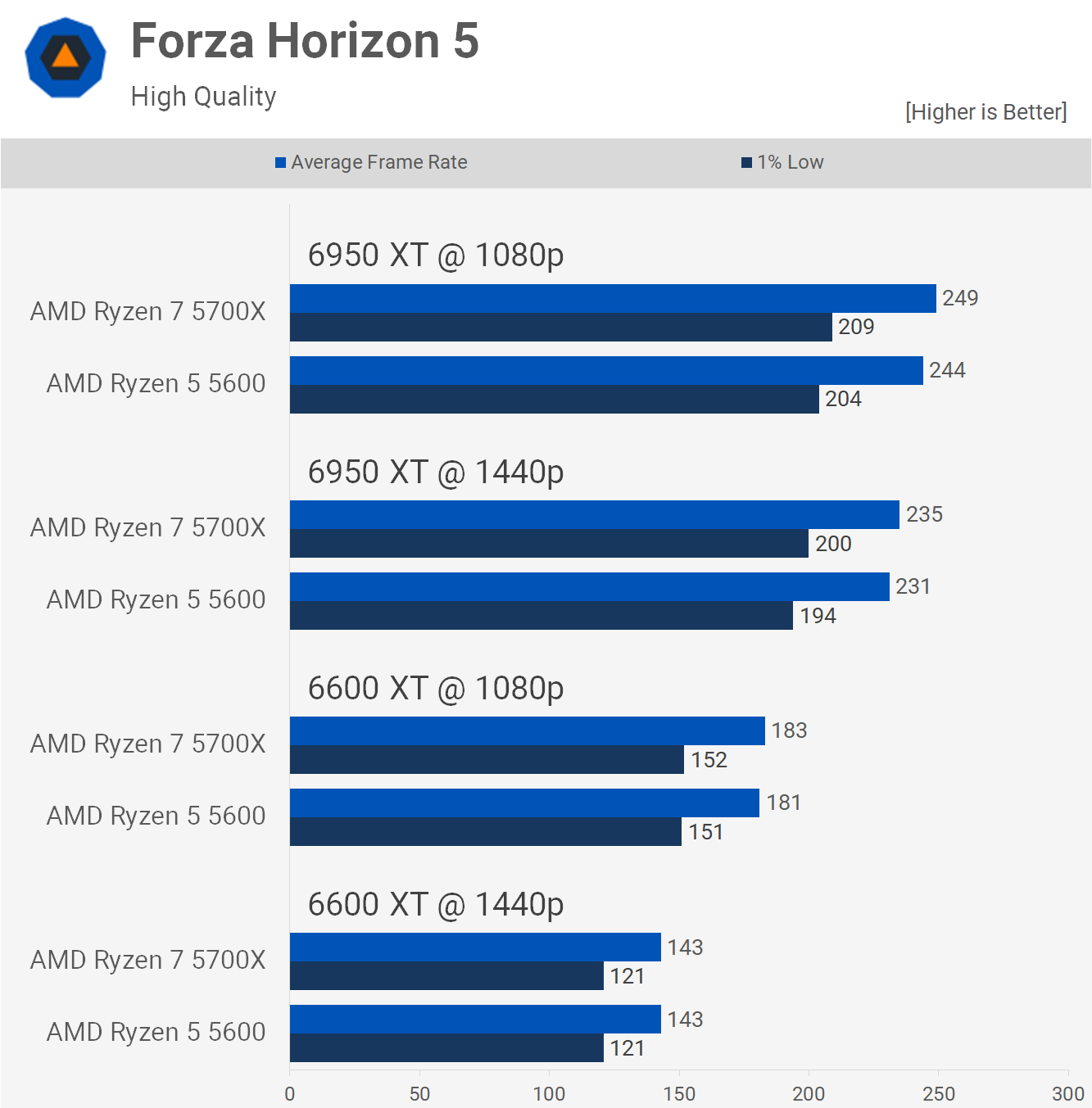
Forza Horizon 5 is kind of lightweight on the CPU, so these results are as expected, basically the same level of performance is seen using either CPU, and with the Radeon RX 6600 XT the game is entirely GPU limited.

Hitman 3 is far more CPU demanding than Forza, but we're still GPU limited with the 6600 XT. The game starts to become ever so slightly CPU limited with the 6950 XT at 1080p, but we're still talking about a 5% advantage for the 5700X.
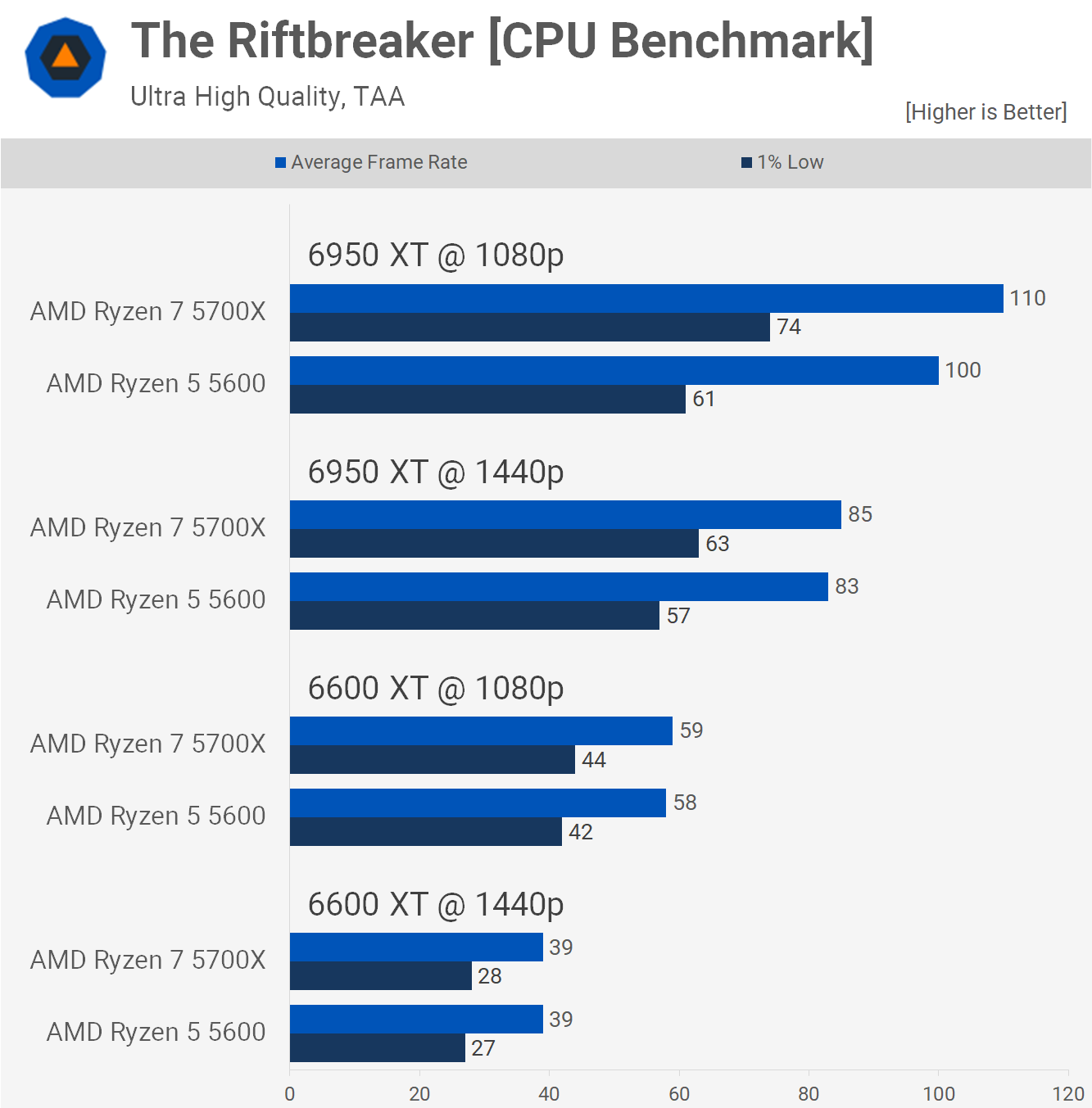
Now, The Riftbreaker can be very CPU demanding. The 5700X was up to 21% faster than the 5600, seen when looking at 1% lows with the 6950 XT at 1080p, though we saw a milder 10% uplift for the average frame rate. Those margins are diminished at 1440p and no difference was seen with the 6600 XT.
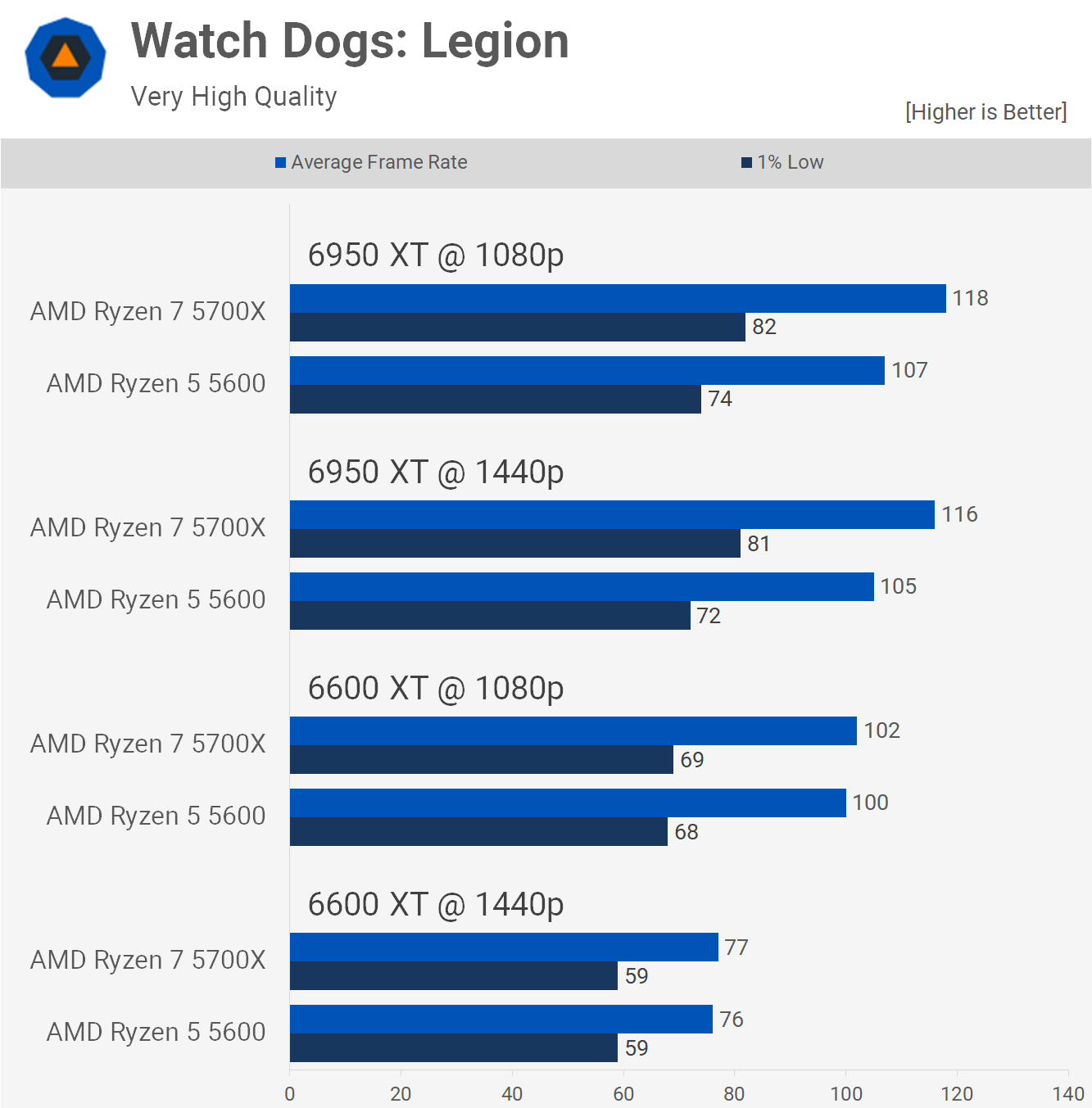
The last game that we're going to look at the individual data for is Watch Dogs: Legion, and this is a very demanding game on both CPU and GPU fronts. We're using slightly dialed-down quality settings, but even so we're limited to ~100 fps at 1080p with the 6950 XT using either CPU.
The 5700X was 10-11% faster when CPU bound in our testing, so those extra cores are helping to slightly improve performance beyond the 5% increase in frequency.
24 Game Average
For those running high-end GPUs such as the Radeon RX 6950 XT at low resolutions like 1080p, we're looking at no more than a 5% performance advantage for the Ryzen 7 5700X over the Ryzen 5 5600, so overall it mostly came down to the difference in clock frequency.
That margin was reduced to 4% at 1440p, meaning there's very little difference between the 6-core and 8-core Zen 3 processors. Then of course, if you're using a slower, mid-range GPU like the Radeon RX 6600 XT, for the most part there's going to be no performance difference to speak of...
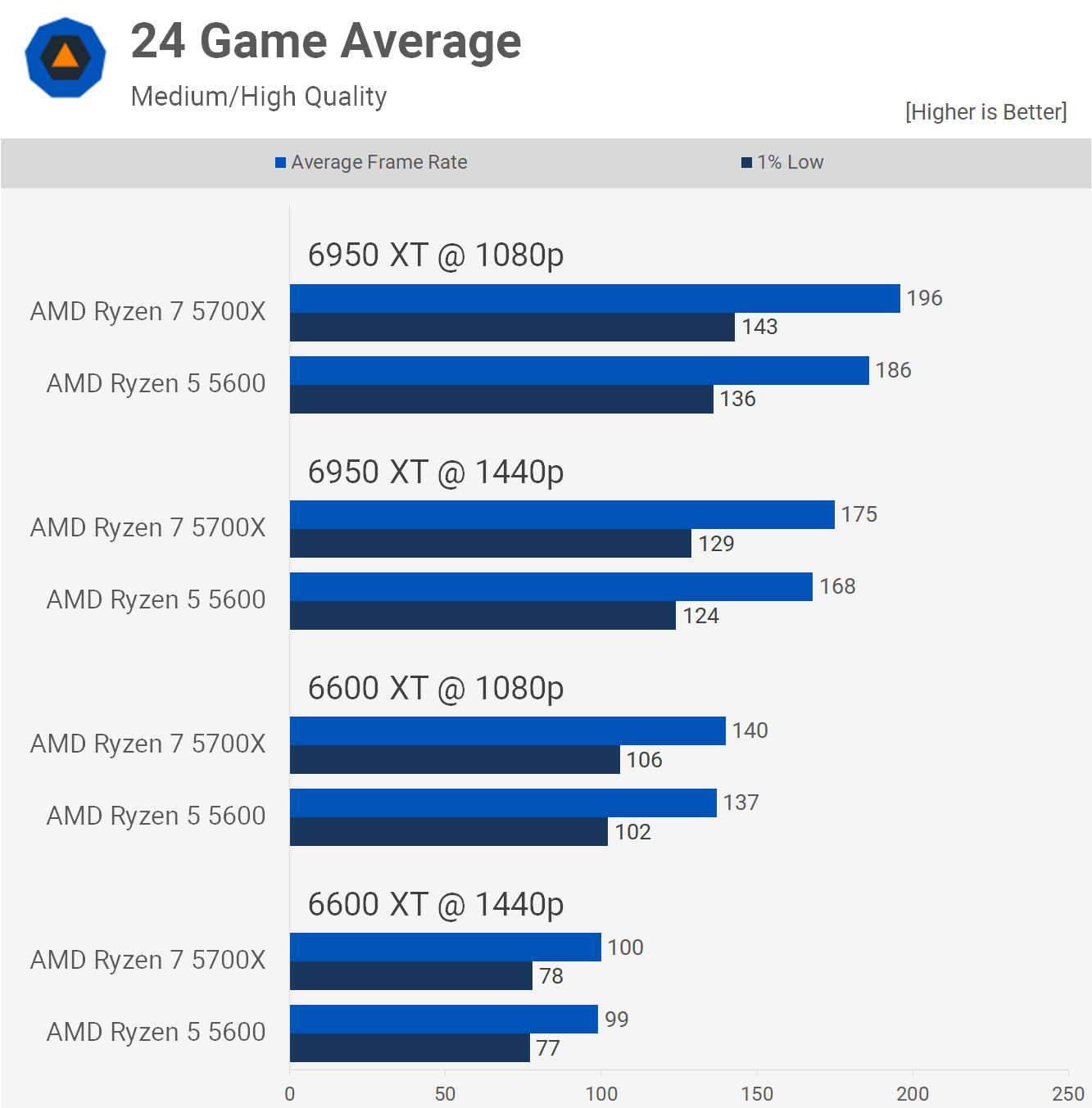
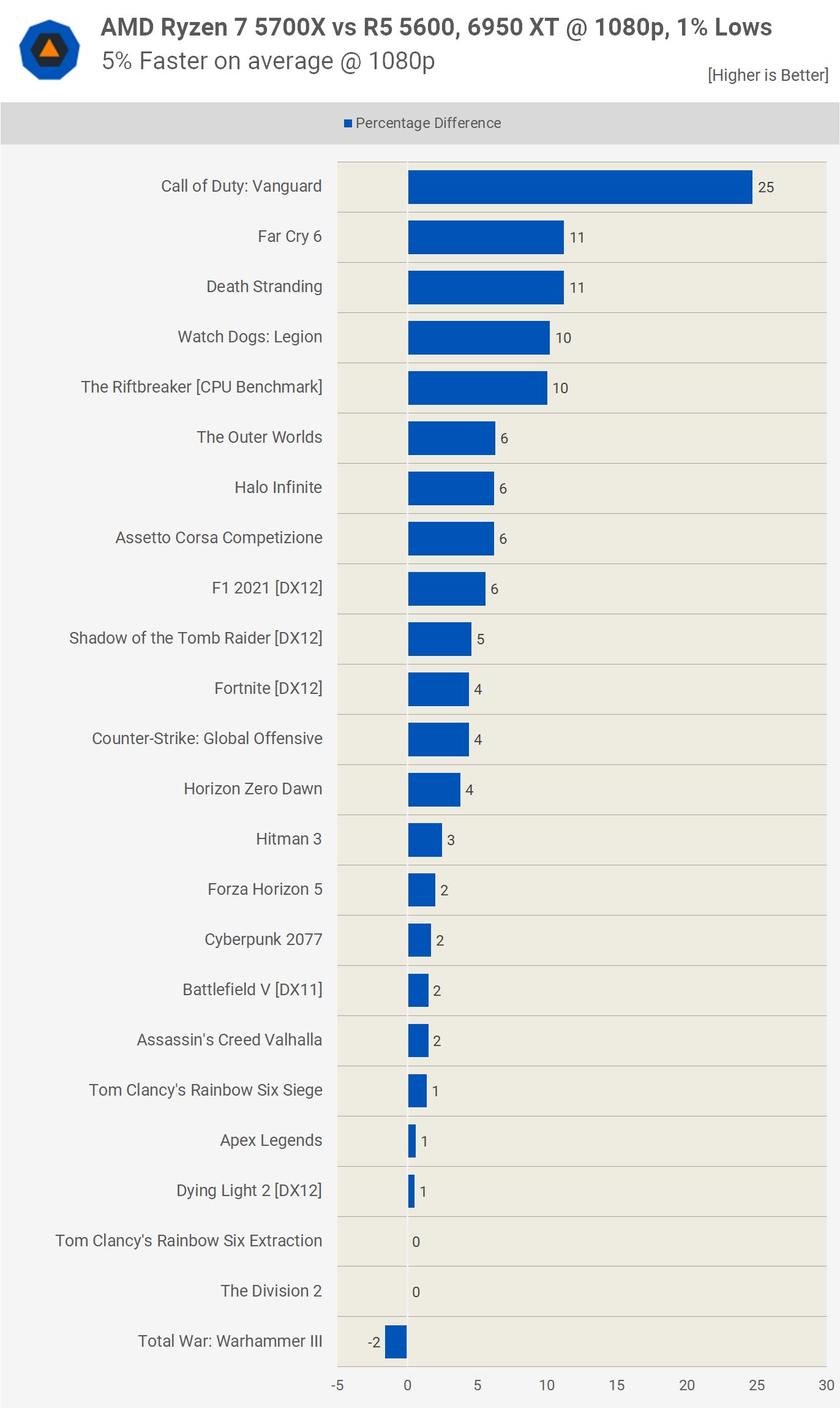
Looking at the Radeon 6950 XT's margins at 1080p, the Ryzen 5700X was up to 25% faster, seen in Call of Duty Vanguard which is an outlier in our testing, with a typical margin of just 5%.
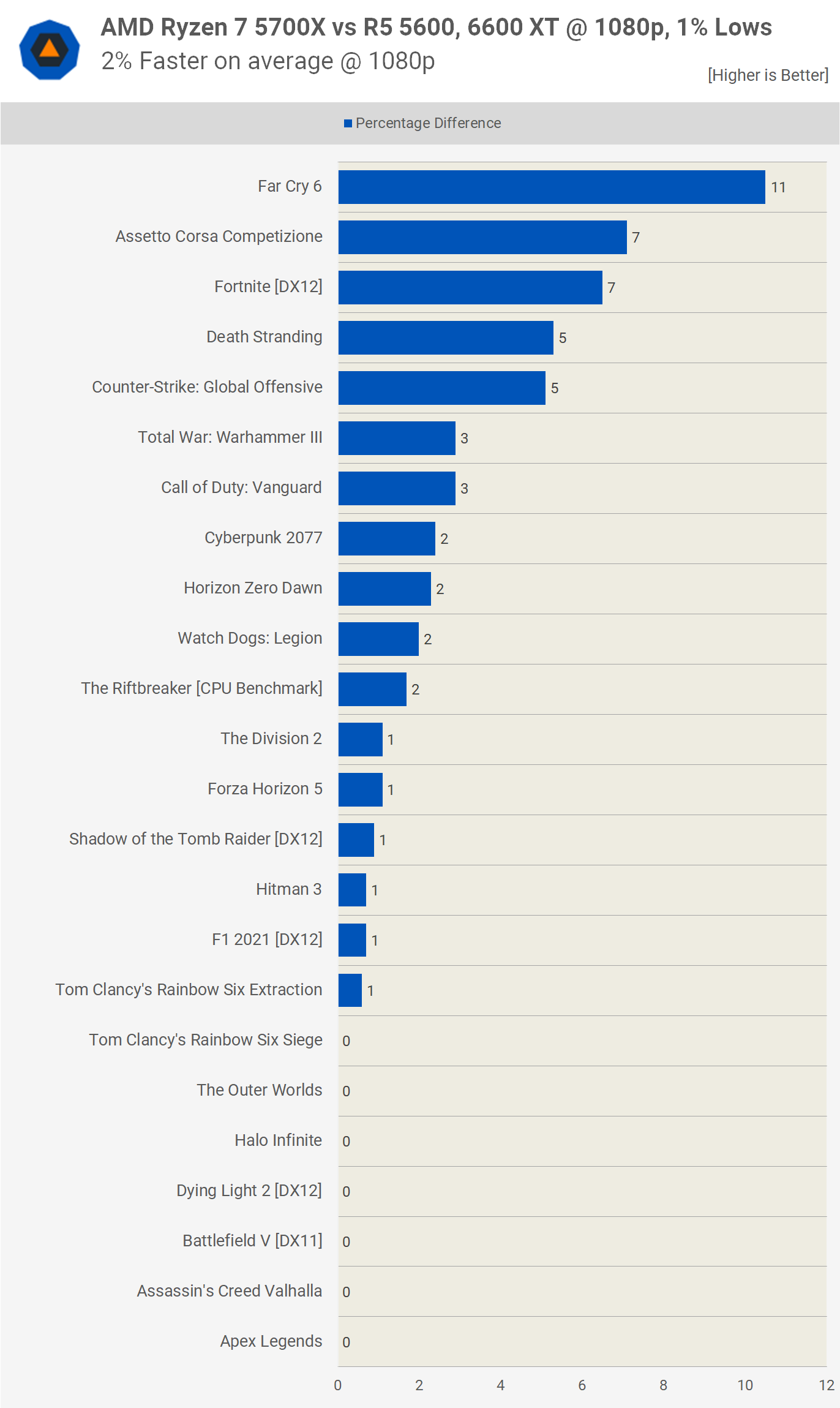
There were just 5 titles where the margin exceeded that of the clock frequency discrepancy between these two CPUs: The Riftbreaker, Watch Dogs: Legion, Death Stranding, Far Cry 6, and Call of Duty.
Then with the Radeon RX 6600 XT, the results get a bit mixed up as games like Call of Duty Vanguard become almost entirely GPU bound. Games where this wasn't the case include Far Cry 6, ACC and Fortnite, with the rest of the margins within 5%.
6 Cores or 8 Cores for Gaming?
For the most part, there's very little difference between the Ryzen 5 5600 and Ryzen 7 5700X for PC gamers. This probably won't be news to many of you, but it's good to see this as clear as day on a dedicated test.
A few months back, we published a Zen 3 CPU scaling feature that compared the 5600X, 5800X, 5900X and 5950X using a range of games, quality settings, and graphics cards. The margins we saw then with the RTX 3090 are similar to what we've seen today using the 6950 XT with a wider range of games, many titles of which are quite new.
Now to the question, should you spend the extra $100 on the Ryzen 7 5700X? That will of course depend on the games you play, how you play them, and how likely you think it is that future games will require the extra processing power the additional two cores of the 5700X offer.
As it stands right now, there's only a handful of games where you can justify purchasing the 5700X, beyond the fact that you could afford it and you just wanted it (productivity? hello). But if you're looking for examples of games that clearly justify buying an 8-core Zen 3 processor over a 6-core model, you're going to struggle to come up with many.
Conversely, if you're after current-gen PC gaming performance, but want to spend as little money as possible, the Ryzen 5 5600 is going to make the most sense. Save the $100 now and put it towards an upgrade later, or towards a faster GPU.
Spending $300 on the 5700X is still a great option overall. If you also use your PC for tackling core-heavy productivity workloads then the choice becomes much easier. For that sort of user, the 5700X or perhaps even the 5900X would be more what you'd be looking at.
It's also worth noting that if you're not just upgrading from an older Ryzen processor, so you're conducting an entire platform upgrade or building a new PC, the value equation is more favorable to the 5700X.
We often see the argument made that although a part like the 5700X is 50% more expensive, if you're building an entire PC which might cost $1,200 with the 5600, increasing that budget to $1,300 to accommodate the 5700X is just an 8% increase. But if you employ that mindset every step of the way, you end up with more memory, storage, a better power supply, the next tier in GPU performance, and so on, and before long that $1,200 budget blows out to $2,200.
If you can afford to do that, that's awesome, but you're not exactly looking for sound tech advice, you're just buying the best thing you can afford. If you're more interested in getting the most bang for your buck now, the Ryzen 5 5600 would be the smarter choice. Once again, if you are only playing games, that extra 33% processing power offered by 5700X will make little noticeable difference for gamers within the realistic lifespan of these products, outside of a few outliers.
